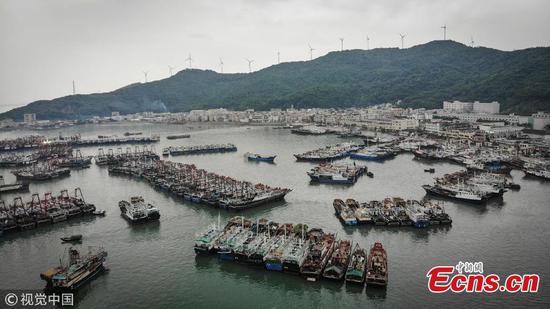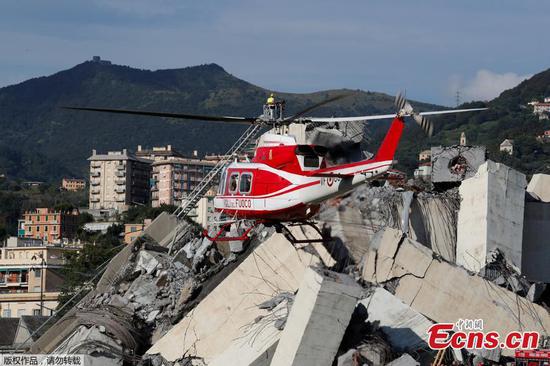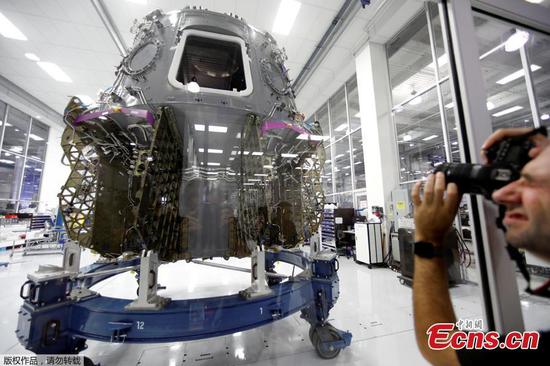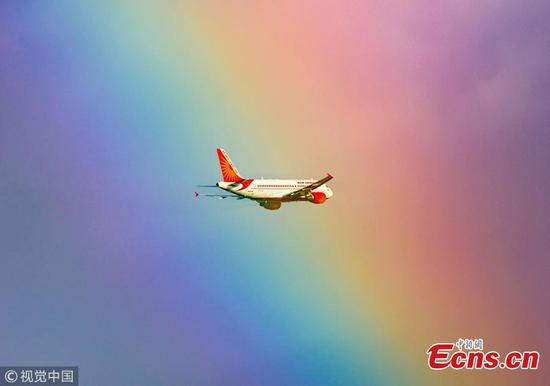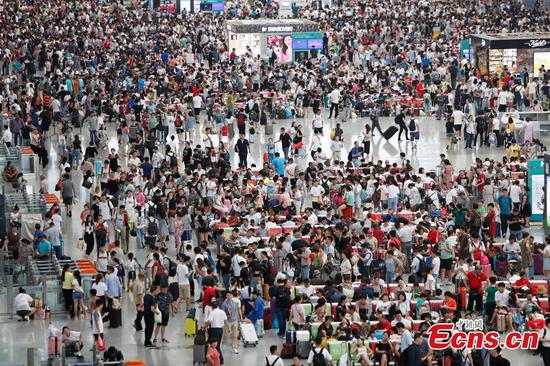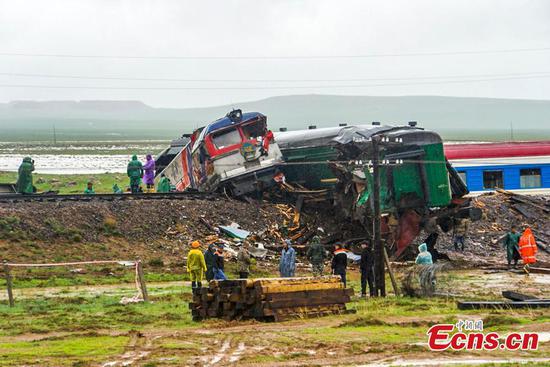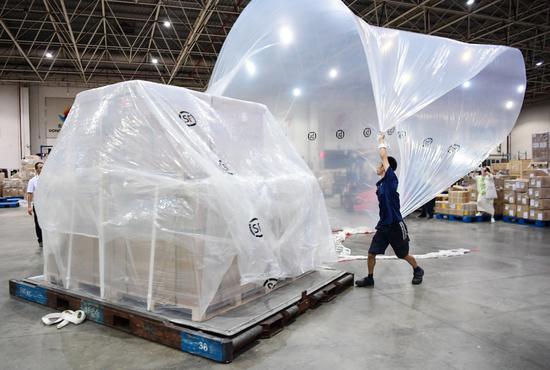
An employee prepares an air mail cargo shipment at the airport in Shenzhen. (Photo provided to China Daily)
China's aviation express sector is taking off as major delivery players expand their fleets, but industry experts said it is just the beginning of the industry's full-blown development.
The 45th all-cargo plane of SF Airlines Co Ltd, the aviation branch of China's express giant SF Express Co Ltd, arrived at Shenzhen Bao'an International Airport and entered operation on July 1.
The Shenzhen-based company owns the largest freight fleet in China. With its nationwide and global network, SF Airlines has transported around 2 million metric tons of cargo since it began operating in 2009.
The logistics firm received approval in February to build its air cargo hub in Ezhou, a city near Wuhan, capital of Central China's Hubei province. With an investment of 2.3 billion yuan ($334.5 million) from SF, the hub is expected to become Asia's first professional cargo airport, handling 2.45 million tons of cargo annually by 2025.
In addition to SF Express, China Post and YTO Express have also established their own fleets, with 33 and 10 planes respectively. ZTO Express announced in June it will form a fleet with international partners.
YTO Express also has plans to build a cargo airport. In June, it announced it had won the bid to build the high-end logistics center of Hong Kong International Airport with partners.
New force
E-commerce players have become a new force in the air express arena. The logistics arms of China's largest two e-commerce firms, Alibaba Group Holding Ltd and JD are both exploring their own e-commerce air transport routes around the globe.
The booming market demand is driving these companies to bolster air transportation. In 2017, China transported 7.06 million tons of air mail cargo, a 5.6 percent increase year-on-year, according to statistics from the Civil Aviation Administration of China. The figure is forecast to reach 7.56 million tons this year.
The development of high-end technologies and mature consumption markets usually drive growing demand for faster delivery systems, said Yang Daqing, a researcher at the China Society of Logistics.
Another reason for the fast development of air cargo transportation in China is that it is growing from a low starting point. It currently represents just 5 percent of overall cargo transportation, while highway transportation tops 70 percent, Yang said.
The shortage of air cargo delivery facilities has pushed express companies to make breakthroughs through technology, such as drone delivery, he said.
"We are seeing the beginning of air cargo transportation in China, which faces the challenges of insufficient cargo airport hubs, incomplete logistics aviation networks and a lack of professional talents," Yang said.
In comparison, international express giants UPS and Fed-Ex rank among the top 10 airlines in the world with hundreds of freight planes.














